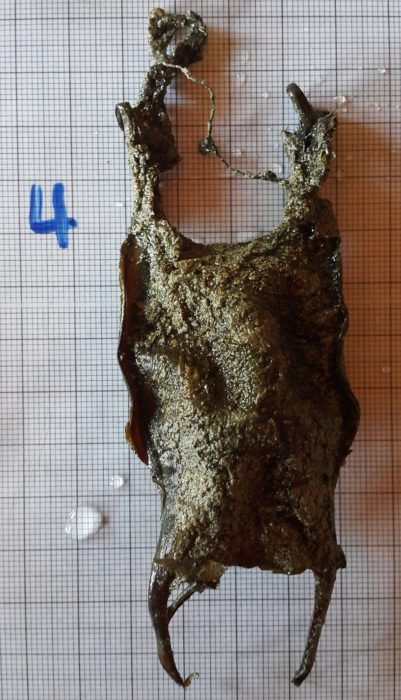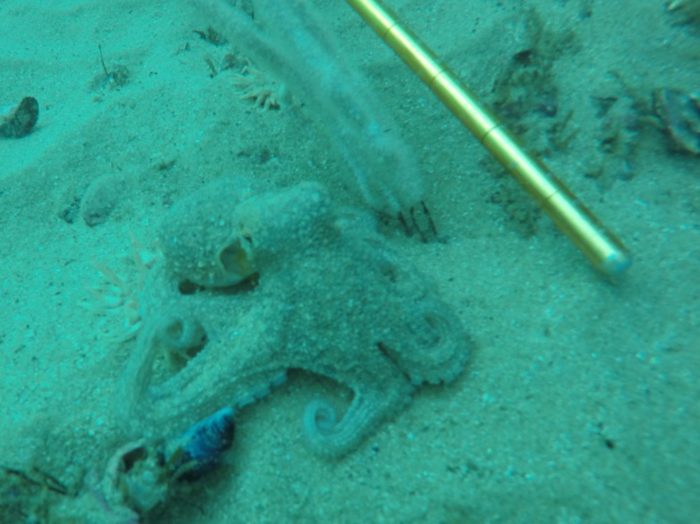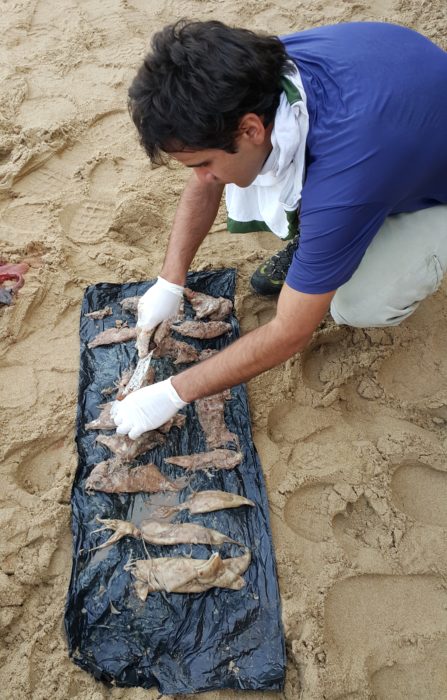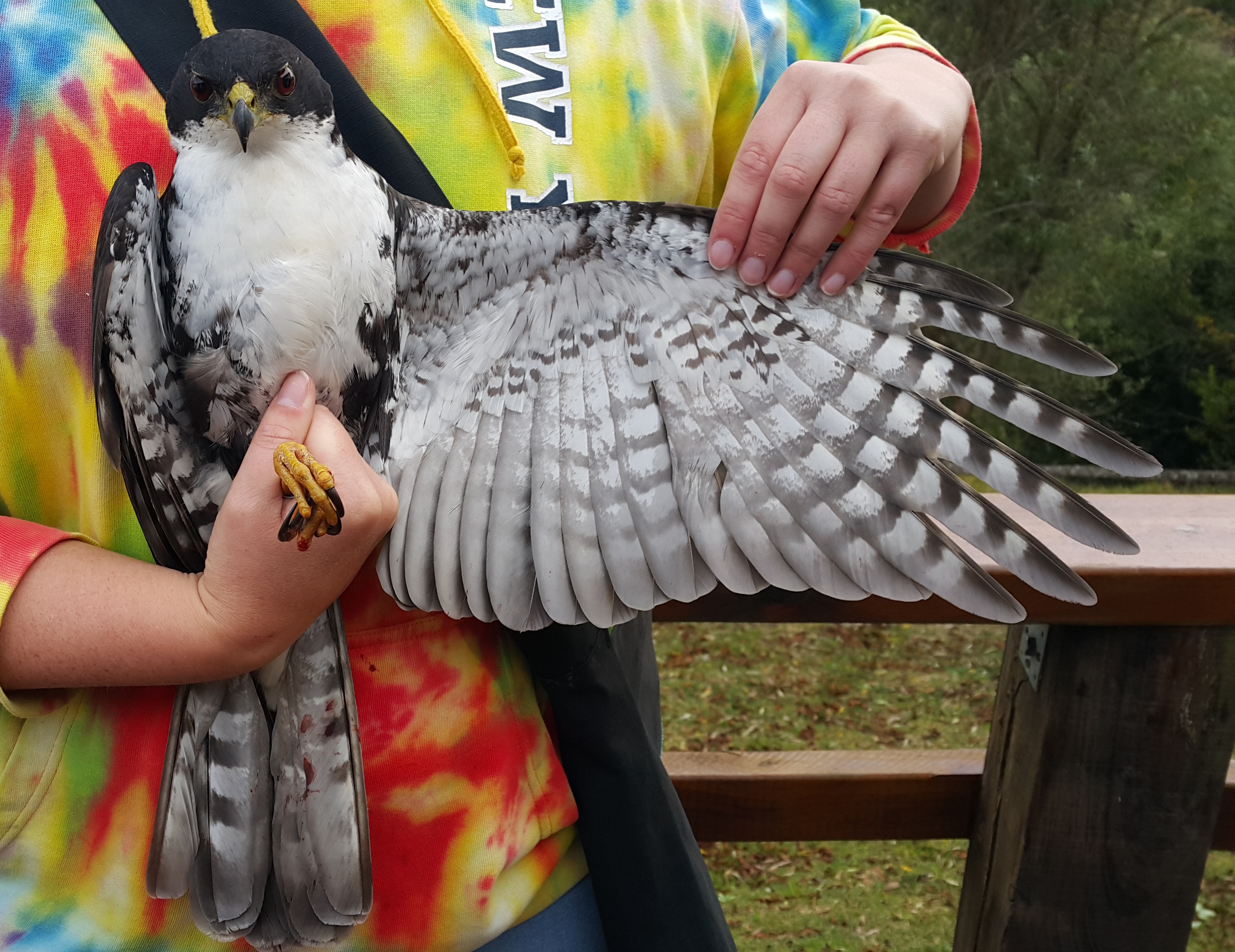We have exciting news on the elasmobranch egg case project! After 7 months of surveying beaches we have finally collected a different egg case! Generally, we will collect egg cases from 6 different species: Dark Shyshark, Leopard Catshark, Puffadder Shyshark, Pyjama Shyshark, St Josephs Shark, and the Twineyed Skate. Finally, we can add one more species to that list – the Munchkin Skate! Yes this is its proper name! This egg case was found on Robberg beach, around Robberg 3. Munchkin Skates Rajella caudaspinosa are Near Threatened according to IUCN, and are a species endemic to southern Africa. There is very little information about this species, and there is definitely scope for more research. A very exciting and rewarding find for us!


To supplement the egg case data we are collecting, we conducted a scuba survey on two of the more accessible reefs in Plettenberg Bay. Unfortunately the conditions for our dives were less than ideal with low visibility and high surge which may have played a role in our results – no elasmobranchs seen on both dives! Regardless, we will try again in summer and hopefully have better conditions.
August has been a great month for bird ringing! Firstly, Minke was invited to do a ringing demonstration for Brackenburn CREW’s (www.brackenburncrew.org.za) nature club, where a whopping 70 birds were caught, including an incredible Black Sparrowhawk Accipiter melanoleucus which was definitely a highlight for everyone there! It is rare to catch a bird of prey in a mist net, and this was a first for Minke. The team also tried some bird ringing at the ORCA house, where we set up the nets the evening before and just opened them fully the next morning. This was great since the team could sleep a bit later than usual for a bird ringing day, and we could also get some data processing done while keeping an eye on the nets. While it wasn’t a busy session, we netted some lovely birds including the Cape White-eye, Cape Robin-chat, Speckled Mousebird, and a Common Waxbill.

The ORCA Foundation is part of the Plett Stranding Network, and if there is a call for assistance, we make ourselves available. Unfortunately this month there was a call, but not for anything alive. A Bottlenose Dolphin had stranded in Goukamma and the ORCA team along with Gwen Penry (Plett Stranding Network co-ordinator) and Wayne Johnson (www.edu-eco.com) drove through to perform a necropsy under Gwen’s instruction. It was an incredible opportunity to see and experience practically what is primarily theoretical knowledge. While the dolphin had stomach full of natural prey items (fish and squid) her lungs weren’t healthy-looking and this is thought to be a contributing factor to her stranding. Many thanks to Gwen for sharing her vast knowledge, and weathering through the variety of questions!
The ORCA team attended the second session of marine lectures hosted by the Plett Hope Spot (www.sst.org.za/hope-spots/plett-hope-spot) and learnt a lot! It is always great to learn about research in Plettenberg Bay and the greater Garden Route. Perhaps next year Minke will be presenting results on a years’ worth of collecting elasmobranch egg cases.
While we love learning, we love teaching too, and Minke was invited to talk to the 3 to 6 year olds of Plett Pre-Primary on sea creatures. Due to the age of the audience it was a simple talk with lots of pictures, with some sound recordings of whales, dolphins, and seals included. It was an interesting time with lots of enthusiastic children! Hopefully they learnt something about the sea creatures we find in our beautiful Plettenberg Bay.
The weather has definitely warmed, the days are getting longer, and we’re all looking forward to spring in Plettenberg Bay!

